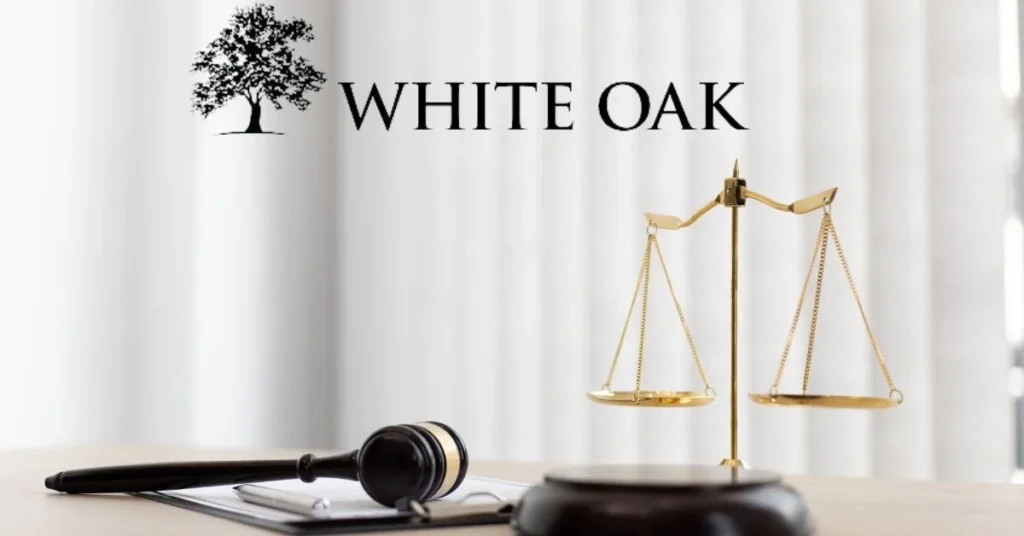White Oak Global Advisors, LLC, a prominent investment advisory and private credit firm, has made a name by providing tailored financial solutions to small and mid-sized businesses. Headquartered in San Francisco and with a global presence, the firm has successfully deployed over $20 billion in capital since its inception in 2007. Despite its success, White Oak has faced legal challenges that have drawn attention within the financial and legal communities.
This article will examine some of the significant lawsuits involving White Oak Global Advisors, providing insights into the legal complexities the firm has navigated and the broader implications of these cases.
Background of White Oak Global Advisors
White Oak Global Advisors was founded to provide small and middle-market businesses with flexible lending solutions. The firm offers a range of financial products, including asset-based loans, equipment financing, trade finance, and invoice factoring. White Oak prides itself on understanding the unique needs of its clients, offering financial support to companies during various stages of growth and economic cycles.
Over the years, White Oak has established itself as a trusted partner in the financial sector, expanding its operations across the U.S., Canada, and Europe. With over 500 professionals and 15 offices worldwide, the firm has been involved in supporting businesses through complex lending solutions. However, as with many firms of its scale, White Oak has faced legal disputes that have brought its business practices under scrutiny.
Notable Legal Disputes
While White Oak has managed a vast portfolio of successful investments, several high-profile lawsuits have been associated with the firm. These legal challenges highlight the intricacies of managing a large investment company and the importance of strict adherence to legal and contractual obligations.
The Isaac Soleimani Dispute
One of the most significant legal battles involving White Oak Global Advisors was a dispute with Isaac Soleimani, a former managing director of one of White Oak’s affiliates. Soleimani sued the firm, claiming that he was unlawfully terminated without the firm buying out his 16.8% stake, which he valued at $143 million. The dispute centered around the firm’s operating agreement, which allegedly required a fair market buyout of Soleimani’s interest before any termination could occur.
In April 2024, a Delaware court ruled in favor of Soleimani, finding that White Oak had breached its operating agreements by failing to conduct the required buyout. As a result, the court ordered the firm to compensate Soleimani for his stake in the company. This case underscored the importance of meticulously following contractual terms in corporate governance and the financial repercussions of failing to do so.
The New York State Nurses Association Pension Plan Lawsuit
Another notable legal case involving White Oak came from the New York State Nurses Association Pension Plan. In this case, the pension plan trustees accused White Oak of breaching fiduciary duties under the Employee Retirement Income Security Act (ERISA), seeking the return of $96 million in investments.
In May 2024, the U.S. Court of Appeals for the Second Circuit partially overturned a lower court’s ruling that had initially ordered White Oak to return the disputed funds. While parts of the order were reversed, the appeals court upheld the lower court’s jurisdiction to award legal fees and other relief to the pension plan. This case illustrated the complexities of ERISA litigation and the financial risks associated with managing large investment portfolios on behalf of pension funds.
Digital Gadgets, LLC v. White Oak
White Oak also faced a lawsuit from Digital Gadgets, LLC, which accused the firm of improper conduct related to a lending agreement. Digital Gadgets claimed that White Oak had breached its commitment to provide funding. The lawsuit, filed in the Supreme Court of New York County, argued that White Oak had failed to fulfill its obligation to lend money.
In 2016, the court ruled in favor of White Oak, dismissing the complaint. The court found that White Oak had acted within its legal rights, and the plaintiff, Digital Gadgets, could not meet the lending conditions stipulated in the agreement. This case highlighted White Oak’s ability to defend itself in legal disputes successfully and underscored the importance of clear contractual terms in financial transactions.
Broader Implications of These Legal Cases
The lawsuits involving White Oak Global Advisors offer important lessons for the financial sector. These cases emphasize the need for clear, enforceable contracts and strict adherence to corporate governance practices. For any firm, particularly one operating on the scale of White Oak, these legal disputes can have financial and reputational consequences.
Impact on Business Reputation
Legal disputes often bring a firm’s practices under public scrutiny. For White Oak, the outcome of these cases has broader implications for its reputation in the financial industry. While the firm has successfully defended itself in several legal challenges, ongoing litigation can impact relationships with investors, clients, and other stakeholders. Maintaining trust and transparency is critical in the financial sector, and effective resolution of legal issues plays a key role in safeguarding a company’s reputation.
Contractual Compliance and Governance
The cases involving White Oak underscore the importance of adhering to contractual obligations. Whether it’s fulfilling terms related to ownership stakes, managing investments for pension funds, or meeting lending conditions, strict compliance with agreements is crucial. White Oak’s experience highlights the need for companies to prioritize strong corporate governance practices and to ensure that all legal contracts are meticulously followed to avoid costly disputes.
Regulatory Compliance and Fiduciary Duties
The ERISA-related lawsuit brought by the New York State Nurses Association Pension Plan serves as a reminder of the regulatory risks involved in managing pension funds and other large investments. Investment firms must meet clients’ expectations and comply with regulatory standards to avoid legal challenges. This case emphasizes the importance of adhering to fiduciary duties and managing funds responsibly to prevent potential violations of federal laws.
Conclusion
White Oak Global Advisors has established itself as a leader in providing financial solutions to small and middle-market businesses. However, the firm has faced significant legal challenges, including disputes over contractual obligations and fiduciary duties. These cases highlight the importance of legal compliance, corporate governance, and transparency in the financial industry.
For companies operating in complex financial environments, the lessons learned from White Oak’s legal battles emphasize the need for clear contracts, adherence to regulations, and trust with clients. As White Oak grows, navigating legal challenges effectively will safeguard its reputation and ensure long-term success.
FAQs:
What is the legal dispute between White Oak Global Advisors and Isaac Soleimani?
The dispute centers on Soleimani’s claim that White Oak breached its operating agreement by terminating him without buying out his stake in the company. A Delaware court ruled in Soleimani’s favor, requiring White Oak to compensate him for his 16.8% ownership interest.
How did the New York State Nurses Association Pension Plan case impact White Oak?
This case involved allegations that White Oak breached fiduciary duties under ERISA, seeking the return of $96 million. The U.S. Court of Appeals partially overturned the order, but parts of the ruling, including jurisdiction to award fees, were upheld.
What was the outcome of the Digital Gadgets lawsuit against White Oak?
The New York County Supreme Court ruled in favor of White Oak, dismissing the lawsuit filed by Digital Gadgets. The court found that White Oak had acted within its rights and that the plaintiff had not met the required conditions for funding.
What can businesses learn from White Oak’s legal challenges?
These cases highlight the importance of clear and enforceable contracts, strong corporate governance, and compliance with fiduciary duties and regulatory standards to avoid costly legal disputes.
How do legal disputes affect White Oak’s business reputation?
While White Oak has successfully defended itself in several legal cases, such disputes can impact its reputation and relationships with clients and investors, making it crucial for the firm to navigate legal challenges effectively.



